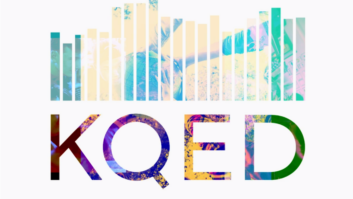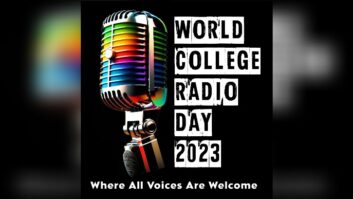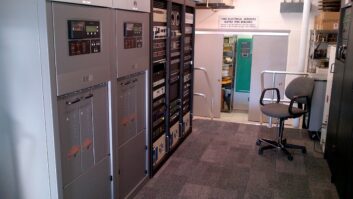The 8th annual World Radio Day will take place on Feb. 13. With the theme “Dialogue, Tolerance and Peace,” the 2019 edition is emphasizing radio as a “vector of peace.” In anticipation of this year’s event, Radio World spoke to UNESCO’s Chief of Media Development and Society, Mirta Lourenço, to find out how stations around the world can join in on the celebration.
Radio World: How long has World Radio Day existed?
Mirta Lourenço: Feb. 13, 2019 will mark the 8th anniversary of World Radio Day. This Day was proclaimed at UNESCO’s 36th General Conference in 2011 and was then unanimously endorsed by the United Nations General Assembly in 2012 as a UN Day. The date was chosen to represent the day United Nations Radio was launched in 1946, more than 72 years ago.

RW: Each year you have a different theme. What is the 2019 edition’s theme and why was it chosen?
Lourenço: The theme of World Radio Day will be “Dialogue, Tolerance and Peace.” Radio broadcasts can be effective at promoting dialogue and participation between different groups in society, as well as uniting them under the common concerns to which they can all relate. As such, World Radio Day 2019 will celebrate the impact of radio in pursuing a more peaceful and tolerant world.
RW: What does UNESCO want radio organizations reading this to do now (or next year) in celebration of World Radio day?
Lourenço: World Radio Day is an occasion for radio stations to create awareness for the many aspects of this medium. The Organization would like to mobilize these radio broadcasters to plan events for Feb. 13 and to show the capacity of radio to lead us toward a better future. They can celebrate on-air, create their own WRD content, join the conversation on social media (#WorldRadioDay) and encourage their listeners to participate.
In addition, 10 Ideas on how to celebrate World Radio Day can also be found on the dedicated website.
RW: Can you provide examples of how organizations are getting involved?
Lourenço: Radio organizations are getting involved by creating their own World Radio Day events on Feb. 13 and celebrating with their listeners. By registering their event on the official website and interacting with other radio lovers on social media, radio stations help make World Radio Day a consistent global trending topic on Twitter on the day of the celebrations.
UNESCO also makes a broad array of audio, interviews, jingles, and other assets available on the website for broadcasters, free of charge, which they may free to widely diffuse.
They additionally follow the 10 Ideas to plan celebrations, such as airing the voices of marginalized groups to empower the voiceless, hosting on-air discussions of local issues and highlighting community spirit.
RW: With all the new forms of “radio” and audio consumption (vs. traditional radio), how does World Radio Day define “radio”?
Lourenço: Despite the ever-changing media sphere and its ongoing advances, radio continues to be the most popular medium in the world. World Radio Day welcomes other audio-based media, such as podcasts and audio hosting platforms, to join in the celebrations, and the Organization sees them as part of the evolution of traditional radio.
Related: World Radio Day: Encouraging Equality Through Radio
UNESCO stands for free, independent and pluralistic media, and journalism that adheres to truthfulness and accuracy, independence, impartiality and fairness, humanity and public accountability. That being said, not all podcasts or platforms respect this code of ethics.
RW: Is this an effort aimed at traditional over-the-air formats or is UNESCO also targeting streaming services and podcasts, etc.?
Lourenço: The Organization would also like to target podcasts and audio hosting platforms, as they present an important extension of radio in providing widespread access to information, encouraging freedom of expression and a means of promoting gender equality through aural communication.
RW: What are your goals for this upcoming edition?
Lourenço: With the theme of “Dialogue, Tolerance and Peace” being especially pertinent to this age, UNESCO’s goal for World Radio Day 2019 is to have as many radio stations and listeners as possible celebrate radio and its capacity as a vector of peace.
The Organization is also working alongside the European Radio Show to create a contest for the 2019 edition. Radio stations will have the opportunity to create and enter their own messages for World Radio Day, and we hope to receive many good submissions to help UNESCO raise awareness for the importance of radio.
RW: How do you see World Radio Day evolving in the future?
Lourenço: World Radio Day observation has continued to develop and tends to reach more people each year. In whatever way radio evolves and innovates, UNESCO will lay emphasis on the right to information, without any obstacle to freedom of expression. Infrastructure capacity is crucial, but our focus is on access and participation. The ultimate message for World Radio Day is that everyone in society should be able to access information through radio and to make their voices heard.







